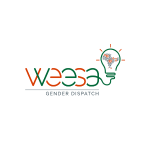

Women’s Economic Empowerment in South Asia (Hosted by SAR GIL)
Tags
- Gender-based Violence (17)
- Water (17)
- Measurement (10)
- Leadership (19)
- Afghanistan (4)
- Social Norms (9)
- Infographics (9)
- Migration (14)
- Transportation (12)
- Green Transition (7)
- Brief (2)
- Empowerment (5)
- Toolkits (13)
- Pakistan (23)
- Energy (26)
- Jobs (43)
- Infrastructure (20)
- Self-help Groups (12)
- Agriculture (12)
- Social Protection (12)
- Digital Inclusion (19)
- Nepal (12)
- Private Sector (27)
- Care Economy (10)
- Bhutan (2)
- Sri Lanka (6)
- Blogs & Articles (34)
- Podcast (33)
- Reports (70)
- India (30)
- Assets and Resources (14)
- Bangladesh (24)
- Maldives (1)
- Climate Change (32)
- Entrepreneurship (31)
- Video (2)
- Financial Inclusion (24)
- Policies and Legislation (14)
- Male Engagement (7)
- Gender Budgeting (7)
- Education and Skills (23)
Archives
- 2023 September (55)
- 2023 October (30)
- 2023 November (20)
- 2023 December (1)
- 2024 January (14)
- 2024 February (14)
- 2024 March (11)
- 2024 April (13)
- 2024 May (93)
- 2024 June (2)
- 2024 July (12)
- 2024 August (16)
- 2024 September (12)
- 2024 October (16)
- 2024 November (27)
- 2024 December (5)
- 2025 January (12)
- 2025 February (18)
- 2025 March (19)
- 2025 April (8)
- 2025 May (12)
- 2025 June (2)

Documents
Sticky Floors and Glass Ceilings: Gender Wage Gap in Egypt (2022)
Women in the Middle East and North Africa (MENA) region have the lowest labor force participation globally. This study uses recent data from Egypt to compare wages of men and
Impacts of COVID-19 on Labor Markets and Household Well-Being in Pakistan: Evidence from an Online Job Platform
This brief uses the administrative database of Pakistan’s largest online job platform and an online COVID-19 survey to examine the gender impacts of the COVID-19 pandemic on labor markets and
Women’s Employment and Safety Perceptions: Evidence from Low-Income Neighborhoods of Dhaka, Bangladesh
This brief uses the 2018 Dhaka Low-Income Area Gender, Inclusion, and Poverty (DIGNITY) survey to assess the gender gap in safety perceptions and analyze the correlation between women’s safety perception
What do We Know About Interventions to Increase Women’s Economic Participation and Empowerment in South Asia? Self-Help Group Programs
The World Bank’s South Asia Region Gender Innovation Lab is conducting a systematic review and meta-analysis of interventions with direct or indirect effects on measures of women’s economic empowerment. The
Facilitating the School to Work Transition of Young Women (2022)
In Latin America and the Caribbean (LAC), the school-to-work transition is more challenging for girls than boys due to societal norms. Young women who drop out of school are more
When Will Global Gender Gaps Close? (2023)
This paper shows that, absent a significant step up in policy efforts, gender gaps may never close. Using Markov chains, a common approach in macroeconomics, it analyzes the dynamics of
Lawful Progress: Unveiling the Laws That Reshape Women’s Work Decisions (2023)
This paper examines the impact of women’s legal rights on labor force participation decisions made by women and men through a granular analysis of 35 gendered laws. The findings identify
Stepping Up Women’s STEM Careers in Infrastructure: An Overview of Promising Approaches (2020)
One of three volumes focusing on how to advance Women’s STEM careers, this report provides an overview of ways to level the pathway for women entering into and progressing STEM
Stepping Up Women’s STEM Careers in Infrastructure: Case Studies (2020)
One of three volumes focusing on how to advance Women’s STEM careers, this report distills findings from five case studies to provide insights into how to support women’s STEM careers
Power with Full Force: Getting to Gender Equality in the Hydropower Sector (2023)
Based on 65 corporate and 900 individual survey responses, this report discusses the challenges women face in the hydropower sector, such as gender biases, a shortage of women with STEM